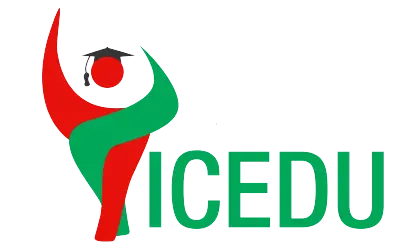Education Conference Speakers
- Home
- Keynote Speakers
- Plenary Speakers
Distinguished Keynote Speakers


Prof. Fred Paas
Professor of Educational Psychology
Erasmus University Rotterdam, Netherlands
Professorial Fellow
University of New South Wales, Australia
Title: "Transforming Education for a Sustainable and Inclusive Future: Cognitive Load–Informed Design Across Ages and Technologies"
Fred Paas is Professor of Educational Psychology in the Department of Psychology, Education & Child Studies at Erasmus University Rotterdam and Professorial Fellow at the University of New South Wales. Since pioneering cognitive load theory in the early 1990s, he has explored how human cognitive architecture can inform the design of efficient, motivating learning environments. His recent studies examine how physical activity and embodied interactions help learners manage cognitive load in technology-enhanced settings.
Paas has published more than 300 articles and chapters, holds an h-index of 114 with over 72,000 citations, and was identified as the most productive scholar in the top five educational-psychology journals. He is Editor-in-Chief of Educational Psychology Review and serves on several editorial boards. His contributions have been recognized by election as a Fellow of the American Educational Research Association.
By linking cognitive load principles to adaptive teaching, evidence-based technology use, and learner well-being, Paas’s work offers practical guidance for policies and partnerships aimed at “Transforming Education for a Sustainable and Inclusive Future.”
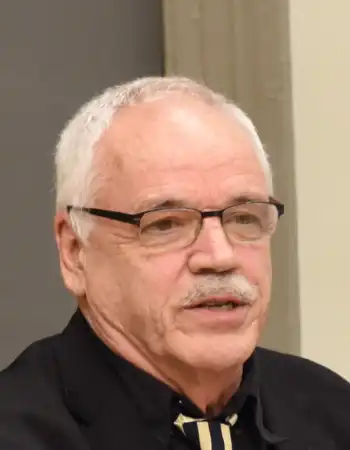

Prof. Gary L. Anderson
Professor Emeritus of Educational Leadership and Policy Studies
Steinhardt School of Culture, Education, and Human Development
New York University,
USA
Title: "Teaching Democracy in a Context of Growing Global Authoritarianism."
Prof. Anderson is a former middle and high school teacher and high school principal. From 1982 to 1984, he served as the principal of the Colegio Americano de Puebla. At the university level, he has taught a wide range of courses, including education policy, educational leadership, qualitative research, action research, discourse analysis, organizational theory, politics of education, teacher development, education advocacy, and the school principalship.
His research interests are interdisciplinary and diverse, with a particular focus on exploring the tensions between theory and practice in applied fields like education. This focus led to his co-authorship of two significant books on action research (Anderson, Herr, and Nihlen, 1994; Herr and Anderson, 2015), alongside extensive writings on knowledge production in applied fields of study.
His most recent work lies in the field of education policy, with a keen interest in how educational research can better inform policy and in the broader challenges of knowledge mobilization. He is particularly concerned with how neoliberal and privatization agendas are undermining public education and the broader notion of the “public sphere.” He published a study on new governance and policy networks, focusing on the Education Task Force of the American Legislative Exchange Council (ALEC), and is currently working on a study of the State Policy Network and its impact on education policy and the professional identity of public sector workers. His 2018 book, The New Democratic Professional: Confronting Markets, Metrics,………
Prof. Anderson is a former middle and high school teacher and high school principal. From 1982 to 1984, he served as the principal of the Colegio Americano de Puebla. At the university level, he has taught a wide range of courses, including education policy, educational leadership, qualitative research, action research, discourse analysis, organizational theory, politics of education, teacher development, education advocacy, and the school principalship.
His research interests are interdisciplinary and diverse, with a particular focus on exploring the tensions between theory and practice in applied fields like education. This focus led to his co-authorship of two significant books on action research (Anderson, Herr, and Nihlen, 1994; Herr and Anderson, 2015), alongside extensive writings on knowledge production in applied fields of study.
His most recent work lies in the field of education policy, with a keen interest in how educational research can better inform policy and in the broader challenges of knowledge mobilization. He is particularly concerned with how neoliberal and privatization agendas are undermining public education and the broader notion of the “public sphere.” He published a study on new governance and policy networks, focusing on the Education Task Force of the American Legislative Exchange Council (ALEC), and is currently working on a study of the State Policy Network and its impact on education policy and the professional identity of public sector workers. His 2018 book, The New Democratic Professional: Confronting Markets, Metrics, and Managerialism, addresses these concerns.
He has published extensively in the field of Educational Leadership, aiming to refocus the field through critical and poststructural theories, particularly those of Marx, Habermas, Bourdieu, and Foucault. His additional research interests include organizational micropolitics, school privatization, and the impact of global neoliberalism on education. With a particular interest in education in Latin America, he has received two Fulbright awards for research in Argentina and Mexico.
A central theme in his research is the symbolic dimension of educational leadership and how administrators “manage meaning,” or navigate dominant discourses within schools, districts, and communities. His dissertation was an ethnographic study of school principals, which led to the development of a model that explores how administrators mediate political demands both vertically within educational hierarchies and horizontally among professionals and the community (Anderson, 1989, 1990). This research further expanded into studies on school micropolitics — the informal power struggles within educational institutions (Blasé and Anderson, 1995; Anderson, 1991) — and the micropolitics of student behavior, particularly as students form academic identities in socially stratified contexts (Anderson, 1996; Anderson and Herr, 1993; Herr and Anderson, 1993, 1997).
A comparative aspect of this research involved analyzing data from the U.S. alongside findings from a Fulbright research award in Puebla, Mexico. Given the growing population of Mexican students in New York, mainly from Puebla, he plans to extend this comparative analysis in future studies.
His research has also focused on how administrative practices in highly unequal and politicized environments can redistribute power to students and communities, particularly in low-income communities of color. He developed a framework for authentic school-community partnerships (Anderson, 1998) and continues to explore leadership models that promote equity in urban schools. These themes are further explored in his book Advocacy Leadership: Toward a Post-Reform Agenda (2009, Routledge).
Additionally, he has conducted several studies using discourse analysis on school and policy texts, national standards, licensure exams for administrators, and media accounts (Anderson and Grinberg, 1998; Anderson, 2001a, 2001b, 2004). These studies trace the evolving role of school leaders in the context of the “new economy,” marked by increasing marketization, corporatization, and the privatization of public education and the public sphere.
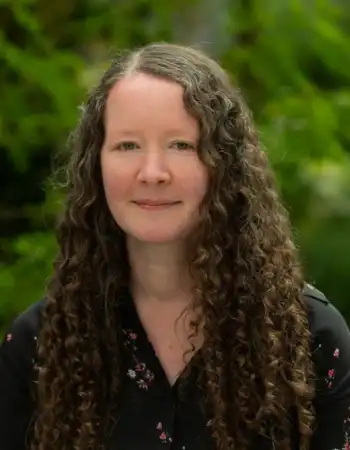

Dr. Ariel Lindorff
Department of Education
University of Oxford
United Kingdom
Title: "Equity and Effectiveness: Beyond Narrow Metrics, Toward Meaningful Change"
Dr Ariel Lindorff is an Associate Professor of Education at the University of Oxford, with an extensive record of scholarly contributions and research leadership in educational effectiveness, equity and improvement. She is Principal Investigator for the 2026 cycle of the Progress in International Reading Literacy Study (PIRLS) — an international large-scale assessment of children’s reading literacy — in England, Northern Ireland and Wales, and has led and contributed to other large- and small-scale studies evaluating educational interventions, conditions and policies, including projects on early language development, student wellbeing, and how interventions may (or may not) have protected against COVID-19 learning loss. A strong commitment to equity underpins her research; for example, she has led and contributed to studies on the educational achievement of pupils with English as an additional language, and ethnic disproportionality in special educational needs identification.
Beyond her research, Dr Lindorff is an Associate Editor of Studies in Educational Evaluation and is on the editorial boards of School Effectiveness and School Improvement and Research Papers in Education. Dr Lindorff earned her DPhil (PhD) at Oxford and is a Chartered Statistician of the Royal Statistical Society as well as a qualified teacher (QTS) in the UK, having earlier taught secondary-school mathematics in the United States. This blend of practical teaching experience and methodological expertise continues to inform her work.
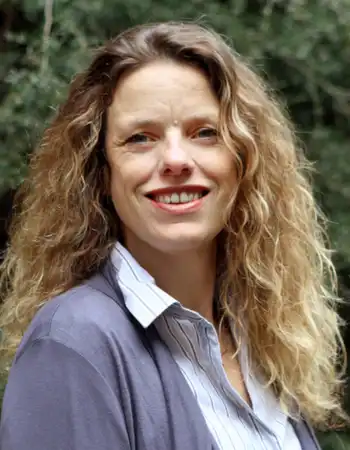

Prof. Annette Bos
Deputy Director (Education)
Director - Graduate Research
Monash Sustainable Development Institute (MSDI)
Monash University, Australia
Title: "Sustainability in Higher Education"
Prof. Annette Bos is an interdisciplinary academic and educational entrepreneur committed to understanding and influencing sustainability transitions. Her work centers on how transdisciplinary and interdisciplinary learning—both within society and formal education—can drive transformative, systemic change toward sustainable and just futures.
Her professional experience spans the strategic development and management of sustainable development education and applied graduate research programs. She has played a leading role in building key organizational capabilities in these areas. She envisions, designs, and delivers educational programs for a wide range of audiences, from senior executives to postgraduate students, while also conducting research and supervising PhD candidates. In all her roles, she collaborates with and leads multidisciplinary teams……..
Prof. Annette Bos is an interdisciplinary academic and educational entrepreneur committed to understanding and influencing sustainability transitions. Her work centers on how transdisciplinary and interdisciplinary learning—both within society and formal education—can drive transformative, systemic change toward sustainable and just futures.
Her professional experience spans the strategic development and management of sustainable development education and applied graduate research programs. She has played a leading role in building key organizational capabilities in these areas. She envisions, designs, and delivers educational programs for a wide range of audiences, from senior executives to postgraduate students, while also conducting research and supervising PhD candidates. In all her roles, she collaborates with and leads multidisciplinary teams to achieve ambitious, real-world outcomes.
As a skilled facilitator, she creates environments that support meaningful engagement with complex challenges, enabling individuals and groups to co-create solutions and catalyze lasting impact. At the Monash Sustainable Development Institute (MSDI), she established and continues to lead the Education Portfolio, which includes higher education, professional development, and co-curricular programs across topics such as climate change, sustainable development, healthcare sustainability, water management, leadership, and systems change. Together with her team of innovative educators, she fosters curiosity, encourages critical thinking, shifts mindsets, and supports the development of practical, forward-thinking solutions.
In her role as an MSDI Executive member, she contributes to governance and strategic development, leads international initiatives, and represents the institute in various forums to build partnerships and pursue new opportunities both within and beyond Monash University.
Before transitioning to academia and becoming a social scientist, she worked as a water engineer, consultant, and trainer with international organizations and NGOs across Europe and Africa. She continues to collaborate with corporations, government agencies, and research institutions, and also serves as a non-executive director and certified organizational coach.
Her publication portfolio includes work on sustainability transitions, social learning, transdisciplinary approaches, sustainable water management, knowledge translation, and sustainability education, as well as numerous commissioned reports for government and industry stakeholders in Australia, Indonesia and internationally. She recently represented MSDI at the launch of Monash University Indonesia’s Master of Sustainability, speaking on a panel at the 2025 Sustainability Forum.
Esteemed Plenary Speakers
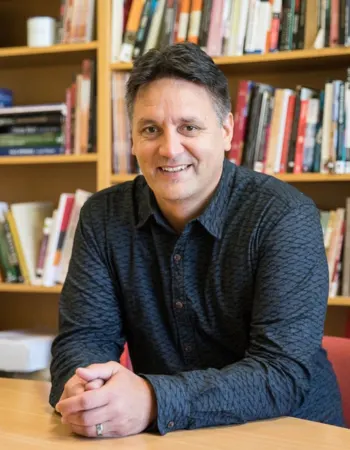

Prof. Brendan Hokowhitu
Director of the ARC Centre of Excellence for Indigenous Futures (IFC)
University of Queensland
Australia
Title: "Unlearning Colonialism: Disciplinary Power and Body-logic"
Professor Brendan Hokowhitu is internationally recognized as a leading scholar in critical Indigenous studies, credited with establishing the sub-disciplines of Indigenous masculinities, Indigenous sociology of sport, and Indigenous critical physical education. As the Director of the ARC Centre of Excellence for Indigenous Futures (IFC) at the University of Queensland, Professor Hokowhitu provides visionary leadership, working in close collaboration with Indigenous communities, community partners, and national and international researchers. Together, they pursue the Centre’s mission to realise an equitable Australia for Indigenous peoples by 2050.
At the heart of the IFC’s innovative research approach is a transdisciplinary relational research design, combined with the synthesis of findings through systematic reviews and existing knowledge frameworks, notably via NIKI (the National Indigenous Knowledge Integration platform). The Centre’s groundbreaking scope necessitates a leader with a pioneering scholarly profile—one that Professor Hokowhitu exemplifies.
With a diverse academic background, Professor Hokowhitu has made significant theoretical contributions across multiple disciplines, including Indigenous film and media, Indigenous healthism, and Indigenous critical theory. As the Centre’s Area of Responsibility Leader for Knowledge Transfer, his extensive experience in Indigenous research leadership and community-centric, collaborative methodologies will be pivotal in shaping policy impact ………
Professor Brendan Hokowhitu is internationally recognized as a leading scholar in critical Indigenous studies, credited with establishing the sub-disciplines of Indigenous masculinities, Indigenous sociology of sport, and Indigenous critical physical education. As the Director of the ARC Centre of Excellence for Indigenous Futures (IFC) at the University of Queensland, Professor Hokowhitu provides visionary leadership, working in close collaboration with Indigenous communities, community partners, and national and international researchers. Together, they pursue the Centre’s mission to realise an equitable Australia for Indigenous peoples by 2050.
At the heart of the IFC’s innovative research approach is a transdisciplinary relational research design, combined with the synthesis of findings through systematic reviews and existing knowledge frameworks, notably via NIKI (the National Indigenous Knowledge Integration platform). The Centre’s groundbreaking scope necessitates a leader with a pioneering scholarly profile—one that Professor Hokowhitu exemplifies.
With a diverse academic background, Professor Hokowhitu has made significant theoretical contributions across multiple disciplines, including Indigenous film and media, Indigenous healthism, and Indigenous critical theory. As the Centre’s Area of Responsibility Leader for Knowledge Transfer, his extensive experience in Indigenous research leadership and community-centric, collaborative methodologies will be pivotal in shaping policy impact and driving meaningful social reform.
Raised in Ōpōtiki, Aotearoa New Zealand, Professor Hokowhitu began his tertiary education at the University of Waikato, later completing a degree in Physical Education at the University of Otago. He earned his Master’s degree from the University of Victoria (Canada), followed by a Ph.D. at Otago. He spent a decade as a lecturer at Te Tumu: School of Māori, Pacific and Indigenous Studies at Otago before taking on the role of Dean of the Faculty of Native Studies at the University of Alberta, Canada.
In 2015, he returned to New Zealand to become Dean of the School of Māori and Pacific Development at the University of Waikato.
Professor Hokowhitu has published extensively across disciplines, particularly in Indigenous critical theory, media, masculinity, and sport. He has authored over 40 peer-reviewed articles and book chapters, and is the lead editor of the seminal volumes Fourth Eye: Māori Media in Aotearoa/New Zealand (University of Minnesota Press, 2013) and Indigenous Identity and Resistance: Researching the Diversity of Knowledge (University of Otago Press, 2010).
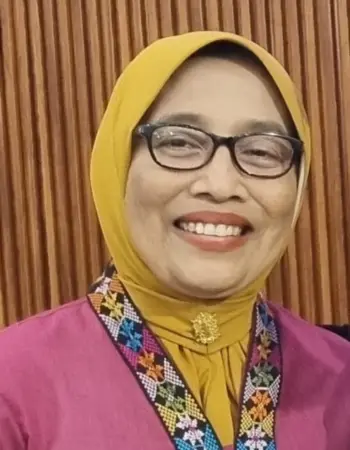

Dr. Ni Luh Nyoman Seri Malini
Faculty of Humanities
Udayana University
Indonesia
Title: "Quality Assurance Framework in Higher Education"
Dr. Ni Luh Nyoman Seri Malini is a distinguished faculty member at the Faculty of Humanities, Udayana University, where she teaches in the English Literature Department. She holds a Doctorate in Linguistics (2011), a Master’s in Linguistics (2004), and a Bachelor’s degree in English Literature (1993), all from Udayana University. With over two decades of experience in language education and assessment, Dr. Malini has completed several advanced training programs from prestigious institutions such as the University of Oregon, The University of Queensland, and the American English Institute. Her expertise spans language teaching methodology, assessment, and research methodology. In addition to her academic contributions, she serves as Coordinator of the External Quality Assurance Center at Udayana University, Editor-in-Chief of the Udayana Journal of Social Sciences and Humanities, and an assessor for the National Accreditation Agency for Higher Education (BAN-PT). She is also the Coordinator of the Bali, Nusa Tenggara Barat, and Nusa Tenggara Timur Chapter of TEFLIN (The Association for the Teaching of English as a Foreign Language in Indonesia) and remains actively involved in professional organizations such as ASIA-TEFL, AALA (Asian Association of Language Assessment), and the Indonesian Linguistic Society (MLI).
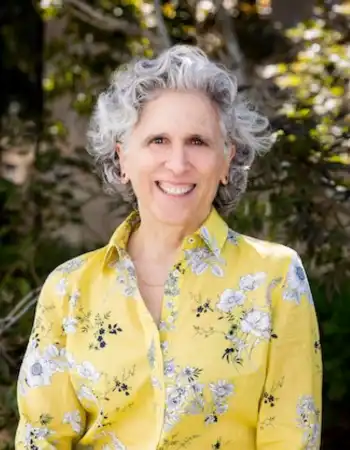

Prof. Ana M. Martínez-Alemán
Associate Dean, Faculty & Academic Affairs
Golden Eagle Foundation Faculty Research Fellow
Carolyn A. and Peter S. Lynch School of Education and Human Development
Boston College, USA
Title: "Philosophical Qualitative Research in Higher Education: Bridging Reflection and Empirical Inquiry"
Ana M. Martínez-Alemán researches topics at the forefront of higher education and campus culture. Her book Online Social Networking on Campus: Understanding What Matters in Student Culture was the first to explore social media’s impact on campus. Currently, she examines college students’ political engagement, and online racialized aggression. Her most recent book explores student sexual violence activism and institutional practice.
The author or coauthor of seven books and dozens of publications, she has also delivered more than 100 talks. Since 2002, she has edited the Educational Policy journal and has served on the editorial boards of the Journal of Higher Education and the American Educational Research Journal. Martínez-Alemán and her coauthors received the 2016 AERA Division J Outstanding Publication Award for their book Critical Approaches to the Study of Higher Education and the 2019 AERA Division J, Outstanding Publication Award, and 2018 Outstanding Publication Award, Association for the Study of Higher Education for Technology and Engagement: Making Technology Work for First-Generation College Students.
Martínez-Alemán is Professor of Education and has served as the Associate Dean of Faculty and Academics since 2017. She joined the Lynch School in 1998 and served as department chair for the Educational Leadership and Higher Education Department from 2007 to 2017. In 2023, Martínez-Alemán served as the President of the Association for the Study of Higher Education. In 2016, Martínez-Alemán was elected Vice President of Postsecondary Education (Division J) at the American Educational Research Association (AERA).Martínez-Alemán earned a doctorate in higher education from the University of Massachusetts, Amherst and received master’s and bachelor’s degrees from the State University of New York, Binghamton.
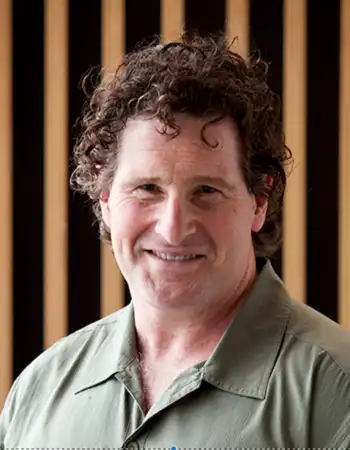

Prof. David Gurr
Faculty of Education
The University of Melbourne
Australia
Title: "Educational leadership for impact and success"
As a Professor in Educational Leadership within the Faculty of Education at the University of Melbourne, his responsibilities include preparing and teaching in pre-service and post-graduate programs, supervision of Masters and Doctoral research and representation on appropriate committees. He is the leader of the educational leadership academic group of the faculty and was the Associate Dean (staffing) in 2019) which involved him in all matters to do with academic staff appointment and development, teacher allocation, academic workload, and direction setting. Over recent years David has served on the following committees: faculty executive, staffing, finance, learning and teaching, diversity and inclusion, honours, master of education, and academic programs. He teaches in the areas of educational leadership, strategic leadership, and school effectiveness and improvement. He is a founding member of the International Successful School Principalship Project, and co-led an Australian team that was awarded a national grant for this project in 2005. He is also a founding member of the International School Leadership Development Network, which is a joint partnership between UCEA and BELMAS. He is a founding member of the Association for Teacher Leadership and Scholarship. He has more than 250 publications and has presented more than 230 times at international and local ……..
As a Professor in Educational Leadership within the Faculty of Education at the University of Melbourne, his responsibilities include preparing and teaching in pre-service and post-graduate programs, supervision of Masters and Doctoral research and representation on appropriate committees. He is the leader of the educational leadership academic group of the faculty and was the Associate Dean (staffing) in 2019) which involved him in all matters to do with academic staff appointment and development, teacher allocation, academic workload, and direction setting. Over recent years David has served on the following committees: faculty executive, staffing, finance, learning and teaching, diversity and inclusion, honours, master of education, and academic programs. He teaches in the areas of educational leadership, strategic leadership, and school effectiveness and improvement. He is a founding member of the International Successful School Principalship Project, and co-led an Australian team that was awarded a national grant for this project in 2005. He is also a founding member of the International School Leadership Development Network, which is a joint partnership between UCEA and BELMAS. He is a founding member of the Association for Teacher Leadership and Scholarship. He has more than 250 publications and has presented more than 230 times at international and local conferences, and has led or been involved in 27 research classified grants worth more than $20,000,000, including one ARC Discovery Grant. David has supervised to completion 21 Masters and 45 Doctoral research students, and has examined more than 80 theses. He has conducted more than 100 school reviews, mainly in Victoria, but also including South Australia, New South Wales and Hong Kong. David has been the Vice-president of the Australian Council for Educational Leaders and past Editor of Hot Topics, Monograph and the academic journal, Leading and Managing. David is the immediate past editor of the CCEAM journal International Studies in Educational Administration, senior associate editor of the Journal of Educational Administration and co-editor of the IAP book series International Research on School Leadership. He has received several honours from ACEL including being awarded the National Presidential Citation in 2004, a national fellowship in 2006, the Hedley Beare Educator of the Year award in 2012, and the Gold Medal in 2014. He is involved in consultancy work in Victorian schools including teaching in a range of professional learning programs associated with school leadership, and evaluating leadership programs. David is a research fellow of the Asia Pacific Centre for Leadership and Change, and member of the advisory board for the International Executive Master of Arts in Educational Leadership and Change, both at the Education University of Hong Kong. He has been an International Associate of the Robert Owen Centre for Educational Change at the University of Glasgow, and a Faculty Fellow at Western University in Ontario.


Assoc. Prof. Samantha Govender
Deputy Dean for Teaching and Learning
Curriculum and Instructional Studies
Faculty of Education
University of Zululand
South Africa
Title: "Curriculum as Assemblage: Responding to Climate Change through Education"
Samantha Govender is an Associate Professor in the Department of Curriculum and Instructional Studies and is currently the Deputy Dean for Teaching and Learning in the Faculty of Education at the University of Zululand in South Africa. She holds a Doctor of Education in Curriculum Studies from the University of Zululand. Her scholarly and professional research field of interests are curriculum and teacher development, teaching, learning and assessment in higher and tertiary education. She has supervised Doctoral and Masters’ students to completion and has published several articles and book chapters in accredited journals. Samantha has also peer reviewed numerous scholarly articles and examined master’s and doctoral thesis for different institutions. She has presented research papers at various local and international conferences. She is part of the Fundisa for Change Professional Learning Community and steered the Keep It Cool Climate Change Education Project. She is also currently involved in initiatives for Education for Sustainable Development, climate action and environmental learning with an emphasis on teacher education.
Panel Speaker


Prof Mpho-Entle Modise
Associate Professor
Department of Curriculum and Instructional Studies
College of Education
University of South Africa, South Africa
Mpho-Entle Puleng Modise, PhD, is a multi-award-winning associate professor in the College of Education at the University of South Africa (UNISA). Her research expertise spans digital transformation in Open Distance e-Learning (ODeL), faculty and student support in higher education and distance education, academic and professional development, technology adoption, and the integration of ePortfolios in teaching and learning. She serves on the executive committee of the South African Education Research Association (SAERA), where she actively advocates for Early Career Researchers (ECRs) across South Africa and the African continent. Her dedication to research excellence has been recognised through several prestigious awards, including commendations for her PhD thesis from the Education Association of South Africa (EASA) and SAERA in 2022, the Women in Research Emerging Researcher Award in 2023, and the UNISA/Sunday World Unsung Heroes Award in 2023. She also serves on numerous local and international editorial boards.
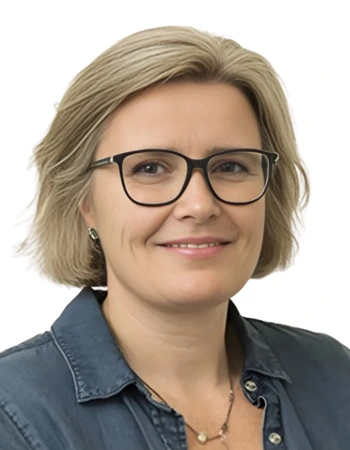

Gøril Ursin, PhD
Dean
Faculty of Nursing and Health Sciences,
Nord University,
Norway
